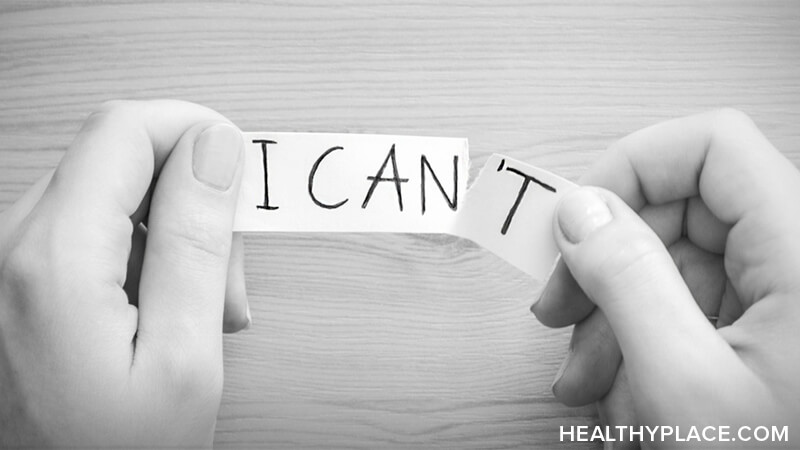Battling Self-Doubt During Trauma Recovery

Battling self-doubt during trauma recovery can feel like an impossible feat. In my experience with posttraumatic stress disorder (PTSD), self-doubt is one of my most difficult struggles. I often compare myself to other people, second-guess my decisions, and pick myself apart until I feel unworthy and powerless. The vicious cycle of self-doubt in trauma recovery can be debilitating at times.
What Feeds Self-Doubt During Trauma Recovery?
When recovering from trauma, it's common to battle self-doubt. Childhood trauma, in particular, especially when it involves sexual abuse at a young age, can impact your self-esteem.1 In my experience, after enduring childhood sexual assault, I began to blame myself for nearly everything that went wrong in my life. Even external events (like deaths in the family or national tragedies) felt like my fault somehow. With a sense of over-responsibility, I simply thought I was bad to the core — that I was unworthy of love and acceptance.
Additionally, I grew up in a highly critical environment, surrounded by a judgmental community and even a few friends who would consistently put me down. This treatment felt like home in a sense, likely because I was already treating myself just as poorly. I thought I deserved to be picked apart and harshly criticized, and I certainly didn't believe I was "rational enough" to trust myself. Self-doubt in trauma recovery drove nearly every decision I made throughout my trauma recovery.
Overcoming Self-Doubt During Trauma Recovery
As I've worked through my childhood trauma and identified this unhealthy pattern, I've been able to address my self-doubt during trauma recovery. Though it's an ongoing struggle that often surfaces during vulnerable times, my self-awareness has allowed me to express more love and compassion toward myself.
In my experience, as you peel back the layers and get to the root of your self-doubt, you can start questioning its validity. I began asking myself questions like, "Why do I put other people's opinions, views, and judgments on a pedestal above my own?" and "Why do I believe other people know better than I do — especially when it comes to my own life?"
I spoke to a therapist, confided in trustworthy loved ones, and surrounded myself with open-minded and supportive individuals who I knew would help lift me up rather than tear me down. Additionally, I began meditating and journaling to help develop my own voice and weaken the self-doubt within me. The more progress I made, the more confidence I gained, and the less self-doubt I experienced.
Battling self-doubt during trauma recovery isn't easy, and it won't simply vanish overnight. However, by providing yourself with the right reassurance, validation, and love, you will begin to notice a shift in your self-talk.
Source
- Okunlola, O. B., Odukoya, J. A., & Gesinde, A. M. (2020). Outcomes of sexual abuse on self-esteem among adolescents: A systematic review. Cogent Social Sciences, 7(1). https://doi.org/10.1080/23311886.2020.1856296
APA Reference
Caramela, S.
(2023, December 10). Battling Self-Doubt During Trauma Recovery, HealthyPlace. Retrieved
on 2026, January 14 from https://www.healthyplace.com/blogs/traumaptsdblog/2023/12/battling-self-doubt-during-trauma-recovery
